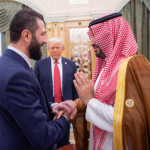When it comes to choosing political leaders, a recent study conducted by the Pew Research Centre reveals that people with right-wing views are more likely to select a leader who shares their religious beliefs. This study of 35 countries across the globe showed that the religious orientation of political leaders remains a significant factor for European voters. The research asked voters if it is important that their leader shares their religious beliefs, and the findings showed a clear divide across the continent.
In several European countries such as Poland, Greece, and Hungary, more than half of voters expressed that it is important for their leader to share their religious beliefs. However, in western and northern European countries, the numbers were significantly lower. For instance, only 15% of respondents in the Netherlands cared about their leader’s religion, while countries like France, Spain, the UK, and Germany also showed a laissez-faire attitude towards this issue. Among Europe’s major economies, Italy had a higher percentage with 30% of respondents valuing their leader’s religious beliefs.
According to Pew, about 84% of the world’s population is affiliated with specific religions, and this number is expected to increase to 87.6% by 2060. The study also highlighted that the link between religion and politics is particularly strong in Asian and African countries, with Bangladesh and Indonesia leading the ranking. In the United States and other parts of the world, people’s religious identities often influence their political views. The senior researcher at Pew, Jonathan Evans, emphasized that individuals on the ideological right are more likely to prioritize religious beliefs and attributes of their leader.
Evans pointed out that there is a clear divide between eastern and western Europe when it comes to attitudes towards the importance of religion in politics. People in eastern Europe are more likely to hold strong religious views and consider religion as a significant aspect of their lives. On the other hand, individuals on the right end of the political spectrum are more inclined to believe that their leader should share their religious beliefs. While this pattern may not be universally true, it is a broad trend that is observed across various countries. The Pew research highlights the intersection of religion and politics and its impact on the preferences of voters around the world.
Overall, the study by the Pew Research Centre sheds light on the significance of religious beliefs in political leadership selection, particularly in European countries. While the importance of a leader’s religious orientation varies across different regions, there is a clear association between right-wing views and the desire for religious alignment with the leader. As the world’s population continues to be closely affiliated with various religions, the role of religion in shaping political preferences is likely to remain a relevant factor in the future. The findings of this study provide valuable insights into the connection between religion, ideology, and leadership choices among voters globally.











